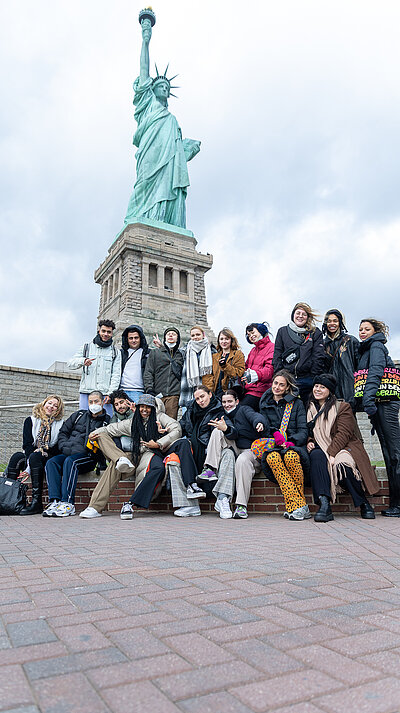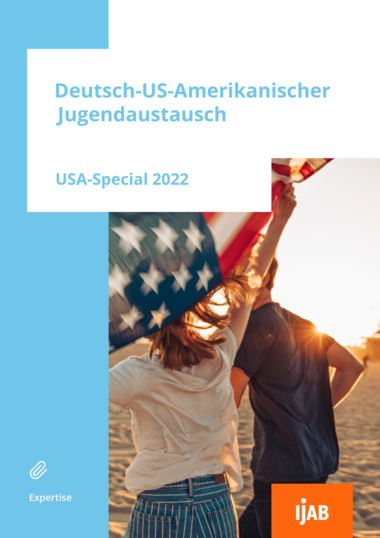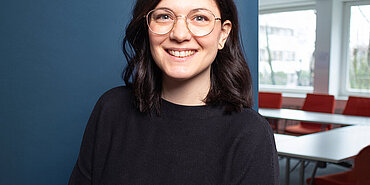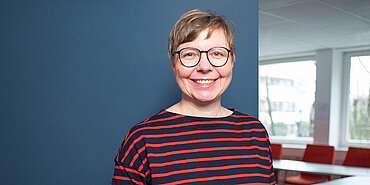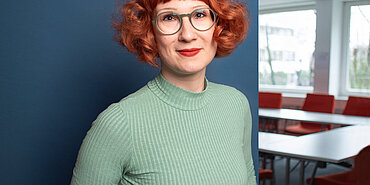Gangway e. V. – Straßensozialarbeit in Berlin has been running exchanges between young people in Germany and the US since 2008. What is BronxBerlinConnection all about?
Back in 2008 we were working with a group of 15 young adults, some of them fresh out of prison, and decided to organize a trip to New York. And we haven’t stopped since. The project’s platform is Hip-Hop culture, a movement that is still very popular on the streets of Berlin today. We bring together young people from New York and Berlin so that they can get to know each other and exchange ideas. They find out about different realities and get to see their own life from a new perspective. Hip-Hop is rooted in the urban communities of New York City, and this is where we spend our time: in the South Bronx, Harlem, Brooklyn. We learn about police brutality, racism, the connection between Hip-Hop and slavery, jazz and blues, and about activists like Malcolm X and Martin Luther King. We learn about gun laws, the lack of social services, and the impact this has on the people who need them. We also take part in workshops in prison and appear at events at the Goethe-Institut and the German Consulate.
International youth exchanges are possible with many countries in the world. Why the US, why New York?
Virtually no other country is as closely connected to Germany as the US. Hip-Hop came to Germany with the G.I.s who were stationed here, and it has since developed into an independent movement with its own distinct style, themes, and language. As the birthplace of Hip-Hop, however, New York is unique. This is where it all began, and virtually no other city holds such a fascination for young people. Young Berliners and New Yorkers have a lot in common alongside Hip-Hop. They have all grown up in a big city and are hence streetwise. Both cities are full of young artists, so it’s difficult to stand out here. Many of the young participants are also of migrant background and have experienced racism.
Who do you work with on the US-American side? Who do your participants interact with?
Our New York partner is the Hip-Hop ReEducation Project based in Brooklyn. Currently, we are also working with numerous organizations such as the Goethe-Institut NYC, the U.S. Embassy in Berlin, The Door in Manhattan, and Zulu Nation. These contacts are the result of the project leader’s personal connections plus years of networking. Our project partners in New York work with socially disadvantaged young people who have grown up in the underbelly of these great cities. They can tell us about what it’s like to have to assert themselves. Many of them have experienced latent racism and violence. Many have never left their own city, never mind their country.
You have made it your explicit mission to give young people with "difficult biographies" the chance to cross the Atlantic. On your website, you call that "Fulbright for the streets". Why is this important to you?
A whole range of opportunities to participate in international youth exchange projects are available to young people pursuing regular academic pathways. But what about those who don't have education on their radar? The ones who’ve made mistakes, who have maybe even served a prison sentence, and now want to be part of a society which they sometimes feel doesn’t want them? For 13 years now, we have been witnessing what can happen if you take young people out of their environments for a while and take them to a completely different country. They learn, they grow, they look at their own lives from a different perspective. They make international friends, and most important of all, they set themselves very different, much bigger goals. In the new environment, they get a sense of achievement, and suddenly the world becomes a whole lot smaller. Many of them stay in touch years after they leave the project.
What does this kind of exchange mean to the young people and how do you prepare them for the exchange?
The experiences young people have during these exchanges are life-defining. After making transatlantic connections far away from home, they return with a different perception of themselves. Many of them set the bar much higher. They set themselves far more ambitious goals. They say, “I just made it to New York/Berlin! Who knows where I’ll be going next!” In both Berlin and New York, young people are not always mobile in their own city. Many only know other neighborhoods from what they see on TV. Prejudices are formed by the media. To be able to take part in the project, participants have to attend briefing sessions in other parts of their city. In the following nine months, young people from all kinds of cultural and socio-economic backgrounds, who would normally have nothing to do with each other, meet and sit around a table together. Quite often, these meetings are just as important as the transatlantic encounters.


